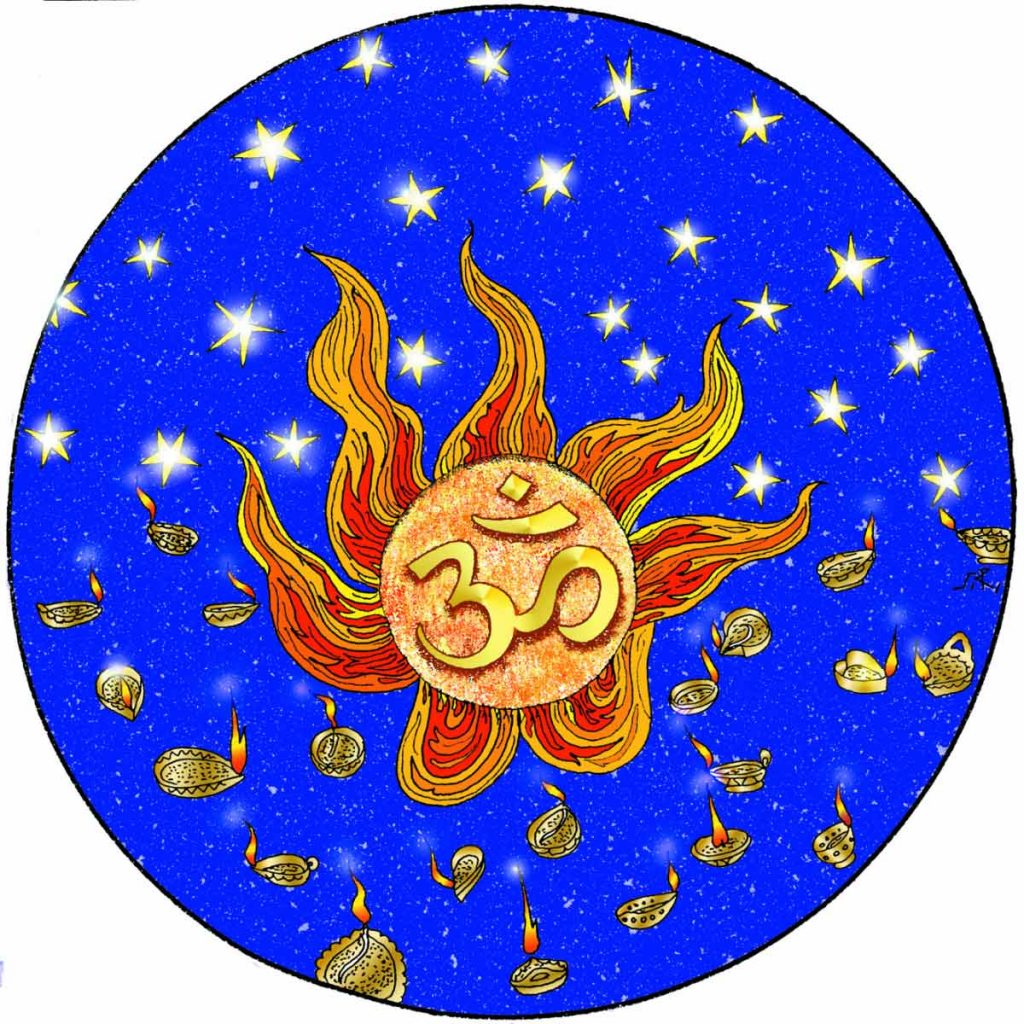From the Upanishads
Reflections on the subtle origins of existence, resident within us all
The following is a translation of the Svetasvatara Upanishad from The Principal Upanishads by S. Radhakrishnan. This Upanishad belongs to the Krishna Yajurveda. The following verses, 1 to 16 are drawn from Chapter 1 and have been lightly edited for clarity.
1 Those who philosophize about Brahman state: “What is the cause of creation? Is it Brahman? Whence are we born? By what do we live? On what are we established? O ye who know Brahman, tell us of who presides over our lives, which are of varied conditions of pleasures and pains.
2 Time, inherent nature, necessity, chance, the elements, the womb or the person, should they be considered as the cause? It cannot be a combination of these because of the existence of the soul. Even the soul is powerless in respect to the cause of pleasure and pain.
3 Those who were devoted to meditation saw the self-power of the Divine hidden in its own qualities. He is the One who rules over all these causes, from time to the soul.
4 We understand Him as a wheel with one outer rim, with three tires, 16 ends, 50 spokes, 20 counter-spokes and six sets of eights, whose one rope is manifold, which has three different paths, whose one delusion arises from two causes.
5 We meditate on Him as a river of five streams, from five sources, fierce and crooked, whose waves are the five vital breaths, whose original source is the fivefold perception, with five whirlpools, an impetuous flood of five pains, divided into 50 kinds of suffering with five branches.
6 In this vast brahma wheel—which enlivens all things, in which all rest—the soul flutters about thinking that the self in him and the Mover (the Lord) are different. Then, when blessed by Him, he gains life eternal.
7 This has been sung as the supreme Brahman and in it is the triad. It is the firm support, the imperishable. The knowers of Brahman, by knowing what is therein, become merged in Brahman, intent thereon and freed from birth.
8 The Lord supports all this, which is a combination of the mutable and the immutable, the manifest and the unmanifest. And the soul, not being the Lord, is bound because of his being an enjoyer. By knowing God, the soul is freed from all fetters.
9 There are two beginningless ones, ‘the knowing’ and ‘the unknowing;’ the first is all-powerful and the other is powerless. Then there is another, connected with the enjoyer and the objects of enjoyment. And there is the infinite Self of universal form—non-active. When one finds out this triad, that is Brahman.
10 What is perishable is the primordial matter. What is immortal and imperishable is Hara (the Lord). Over both the perishable and the soul, the one God rules. By meditating on Him, by uniting with Him, by reflecting on His being more and more, there is complete cessation from the illusion of the world.
11 By knowing God there is a falling off of all fetters; when the sufferings are destroyed, there is cessation of birth and death. Meditating upon Him is the third stage. This brings about separation from the body, universal lordship, absorption into oneself alone and fulfillment of desires.
12 That Eternal which rests in the self should be known. Truly there is nothing beyond this to be known. By knowing the enjoyer, the object of enjoyment and the Mover of all, everything has been completed. This is the threefold Brahman.
13 As the form of fire when latent in its source is not seen and yet its seed is not destroyed, but may be seized again and again in its source by means of the stick drill, so it is in both cases. The Self has to be seized in the body by means of the syllable aum.
14 By making one’s body the lower friction stick and the syllable aum the upper friction stick, by practicing the drill of meditation, one may see the God, hidden, as it were.”
15 As oil in sesame seeds, as butter in cream, as water in riverbeds, as fire in friction sticks, so is the Self found in one’s own soul if one looks for Him with truthfulness and austerity.
16 The Self which pervades all things, as butter is contained in milk, which is the root of self-knowledge and austerity, that is the Brahman, the highest mystic doctrine. That is the highest mystic doctrine.
SARVAPELLI RADHAKRISHNAN (1888-1975) was an Indian philosopher and statesman, India’s first Vice President (1952–1962) and second President (1962–1967).
